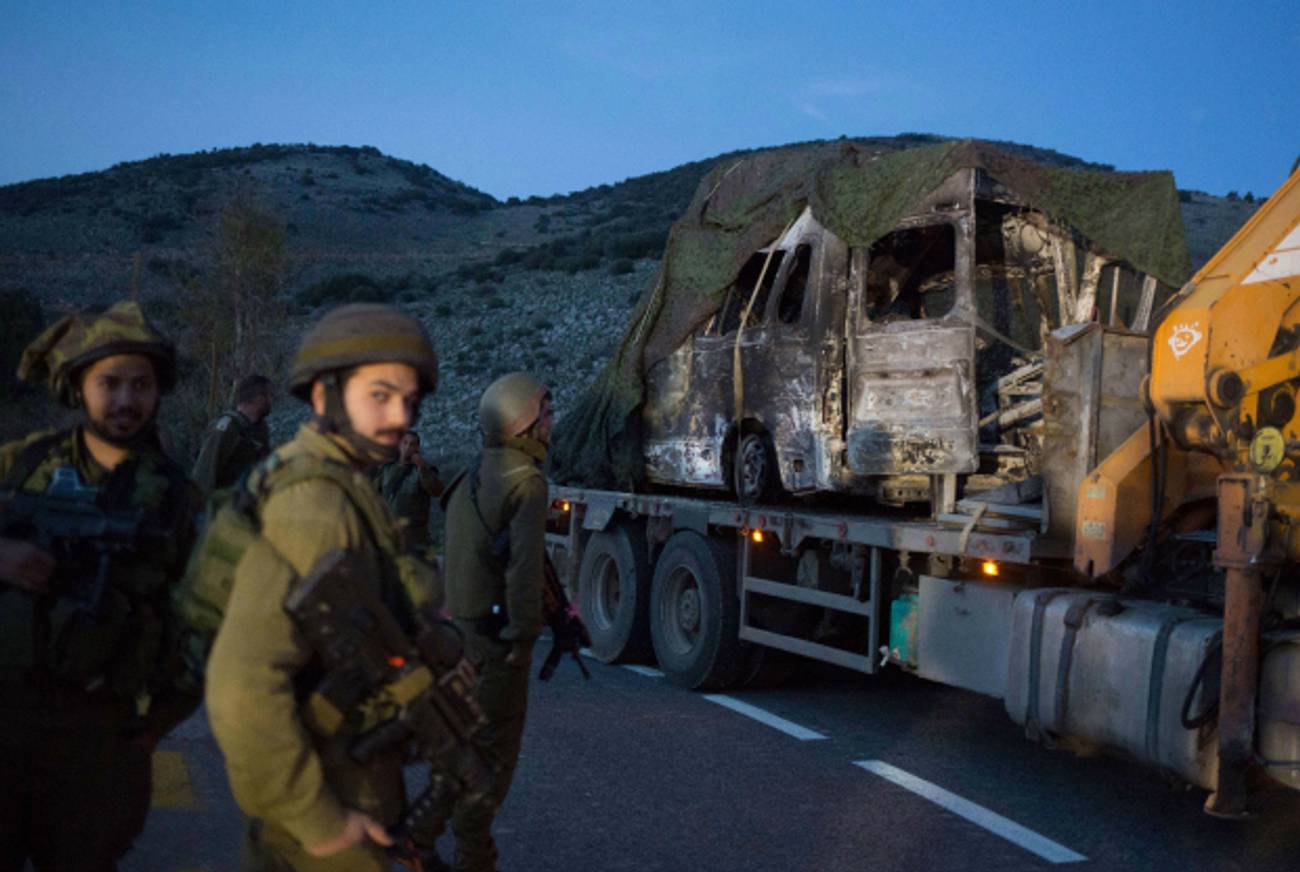Two IDF Soldiers Killed Near Lebanon Border
First fatal Hezbollah attack in Israel’s north since 2006 raises questions about deterrence




Two Israeli soldiers were killed and seven injured yesterday in a Hezbollah attack on IDF vehicles near the easternmost part of the Israel-Lebanon border. Five Kornet rockets were fired at a military convoy, in what was the first fatal attack conducted by Hezbollah in the north since the Second Lebanon War ended in 2006. The IDF returned fire, apparently leading to the death of a U.N. peacekeeping soldier from Spain. The attack came in response to a drone strike earlier this month in the Syrian Golan Heights, which led to the death of six Hezbollah militants and a senior Iranian officer. Israel has not officially claimed responsibility for the deaths, though it is widely believed to have been a targeted strike against a group that was planning attacks on the Golan Heights in Israel. (Whether or not the Iranian officer was the intended beneficiary of the drone’s missile is unclear.) Additionally, on Tuesday, two rockets fell in the Golan, prompting the evacuation of the ski resort on Mt. Hermon.
This latest cycle of violence is surely the most high-profile in years. That is not to say that the conflict between Israel and Hezbollah has been on hiatus since 2006, but the war since then has been conducted largely in secret. Senior members of Hezbollah have met mysterious deaths—including, most prominently, arch-terrorist Imad Mughniyeh, whose son Jihad was one of those killed in the strike earlier this month. And at least half a dozen shipments of weapons from Iran to Hezbollah have been attacked, usually on Syrian soil. Israel has always been careful never to claim responsibility—and to be fair, there are many other countries interested in harming Hezbollah—presumably operating under the logic that such claims would be publicly humiliating and provoke a far more violent response. Hezbollah’s attempts to retaliate mostly failed, or were disrupted by Israeli intelligence (or information provided by its allies). In the summer of 2012, Hezbollah finally avenged Mughniyeh’s death when a suicide bomber blew himself up in Burgos, Bulgaria amidst a busload of Israeli tourists. Six people were killed, including five Israelis. Hezbollah did not dare take responsibility.
Yesterday’s attack, then, is particularly troubling in terms of what it says about the effectiveness of Israel’s deterrence capability. When the Israelis withdrew from South Lebanon in 2000, Hezbollah attacks—kidnappings, shootings, and bombings—became a regular occurrence. The heavy toll paid by Hezbollah and Lebanese society generally during the 2006 war put an end to those attacks. Hassan Nasrallah, the organization’s leader, famously admitted that had he known that the July kidnapping of two Israeli reservists would lead to war, he never would have ordered it. But last October, in the aftermath of Operation Protective Edge, Hezbollah publicly claimed responsibility for explosive devices that detonated near an Israeli outpost on Har Dov, where the disputed Syrian, Lebanese, and Israeli borders all converge. Two soldiers were injured. That this happened after a particularly lengthy operation in the Gaza Strip which ended without a clear-cut Israeli victory is telling. Hezbollah now seems confident that it can safely return to sporadic bloodletting without risking serious consequences. And the fact that Hezbollah, currently mired in the Syrian civil war—and gaining valuable combat experience as it stretches on—feels unperturbed by the possibility of a new front is bad news for Israel. Ironically, restoring deterrence exposes Israel to the risk of an all-out war, with the possibility of miscalculation and escalation on both sides.
Israel yesterday received assurances, via the U.N., that as far as Hezbollah was concerned the incident was over. But without the firm assertion of deterrence, there could be more attacks to come. As analyst Omer Einav from the Institute for National Security Studies wrote just prior to yesterday’s attack:
Iran and Hizbollah appear to be seeking an appropriate violent response to restore deterrence and signal to Israel that they will not accept the change in the rules of the game, but without this leading to war. A January 19 headline in the Lebanese daily as-Safir put it well: “More than a Response, Less than a War.”
Tal Kra-Oz is a writer based in Tel Aviv.